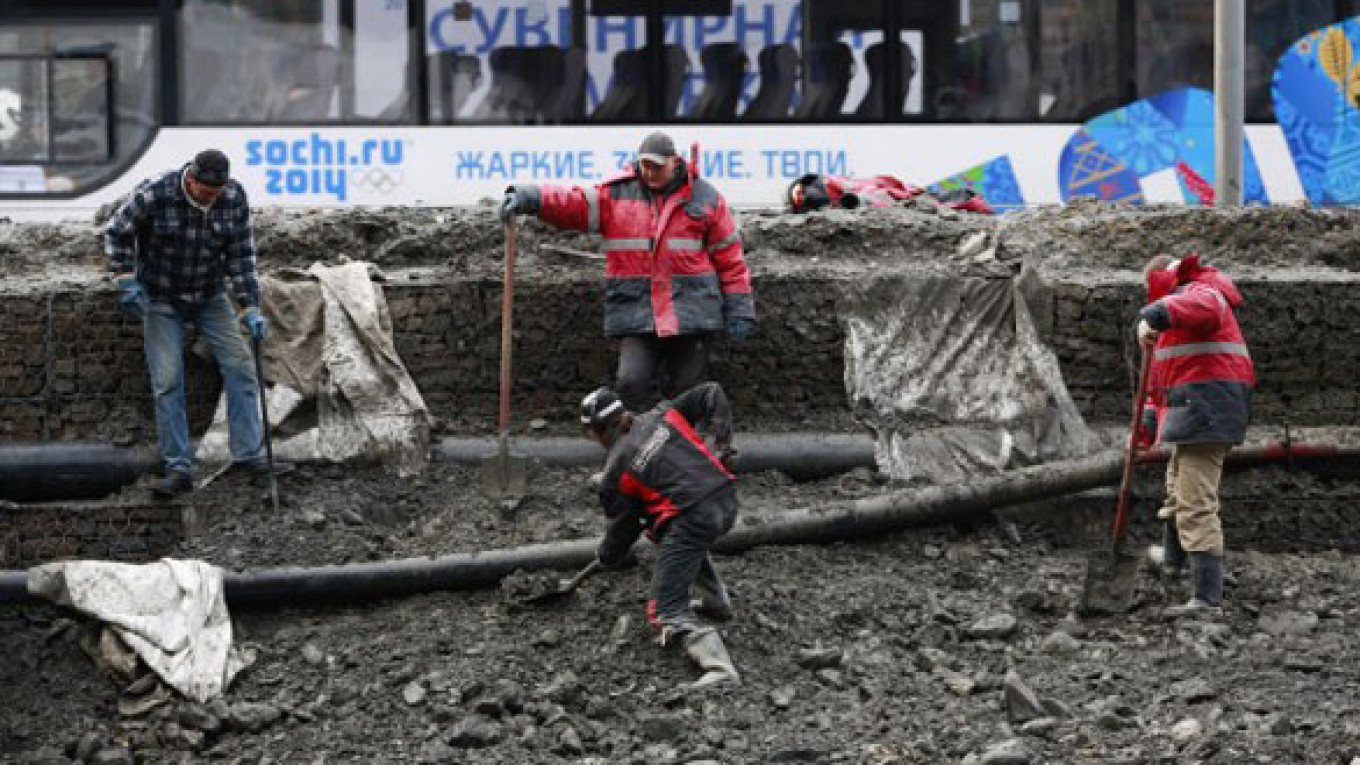The opening ceremony of the 2014 Winter Olympic Games will take place in Sochi on Friday. Regrettably, as soon as this venue was selected by the Olympic Committee in July 2007 in Guatemala, the Western media unleashed a vicious, often hypocritical and extremely biased campaign against Sochi and Russia in general.
It has been dominated by stories about cost overruns, rampant corruption and? supposed discrimination against gays, while journalists? constantly stir up the possibility of? terrorist attacks - anything to spoil the atmosphere. Russia-haters from the neocon camp, LGBT radicals and sensation-mongering journalists have effectively? sided with Islamist terrorists in an attempt to discredit the Games.
The closer we get to the opening of the Olympics, the more the Western media tries to sabotage the Games, to rob Russia and President Vladimir Putin of the credit they deserve for building an Olympic city in Sochi virtually from scratch.
The ill-wishers dwell on incomplete facilities, buildings "on the verge of collapse," power outages, too little snow and even a bathroom sink that they? believe to be? too small in a hotel room. Anything is fair game to deprive Russia of its well-deserved prestige as host of the Games.
The Washington Post, which has richly deserved its sobriquet "Pravda on the Potomac," has been overflowing in anti-Sochi venom in its coverage of the Olympics over the past weeks. For example, a Jan. 23 comment by the newspaper's sports columnist, Sally Jenkins, used the word "thug" when referring to Putin's regime. Perhaps? Jenkins is unaware that Russia is a major partner in the U.S. war against terrorism, and that the U.S. has formed more than 20 bilateral government commissions with Russia on a wide range of issues, including arms control, counter-narcotics, energy, environment and space.
Jenkins' article suggested that the International Olympic Committee made a gross mistake by selecting Sochi in the first place, endangering the security of athletes and spectators. In reality, of course, the entire world faces the threat of Islamic terrorism. Should we then cancel all athletic and cultural events? This would allow the terrorists to claim victory in their battle.
U.S. President Barack Obama, French President Francois Hollande and other Western leaders should not boycott the Sochi Games. They should attend them in a show of solidarity with the Russian people.
Perhaps the only good news amid all of the anti-Sochi criticism is that British and U.S. security services are working with their Russian colleagues to protect the Sochi Olympics. There needs to be more of this type of cooperation and less bile directed at Russia.
Russia, of course, is not a full-fledged developed democracy. But it would help for all critics to appreciate the dramatic changes that the country has made in a relatively short time. Unfortunately, most of them do not want to see these changes and prefer to present Russia as the reincarnation of the Soviet Union.
Notably, Gian-Franco Kasper, an ?International Olympic Committee member, said a European city would need 150 years to build the same sports facilities that Russia was able to build in six years.
In any case, let us wish all athletes good luck in the upcoming Olympics that they have spent so many hours and years training for and the most thrilling time to all the spectators.
Edward Lozansky is president of the American University in Moscow.
A Message from The Moscow Times:
Dear readers,
We are facing unprecedented challenges. Russia's Prosecutor General's Office has designated The Moscow Times as an "undesirable" organization, criminalizing our work and putting our staff at risk of prosecution. This follows our earlier unjust labeling as a "foreign agent."
These actions are direct attempts to silence independent journalism in Russia. The authorities claim our work "discredits the decisions of the Russian leadership." We see things differently: we strive to provide accurate, unbiased reporting on Russia.
We, the journalists of The Moscow Times, refuse to be silenced. But to continue our work, we need your help.
Your support, no matter how small, makes a world of difference. If you can, please support us monthly starting from just $2. It's quick to set up, and every contribution makes a significant impact.
By supporting The Moscow Times, you're defending open, independent journalism in the face of repression. Thank you for standing with us.
Remind me later.


